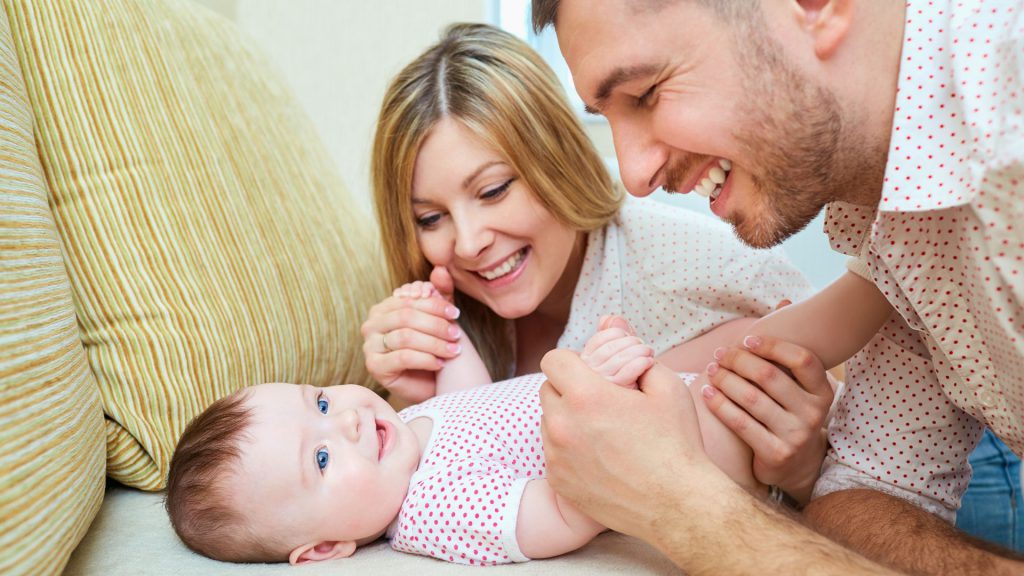Five Foundations for Perinatal Mental Health That Actually Help

Babies are a magnet for well-meaning people to dispense advice. Sometimes it’s helpful, but often suggestions of how you should be mothering can seem like a criticism.
Those first few months as a mother are a heady mix of vulnerability, exhaustion and joy. It’s the most highly anticipated event in our lives, but new babies are not easy and taking care of your mental health has never been more difficult or more important.
Every day in my practice I see new parents who are overwhelmed by trying to meet an invisible, unrealistic standard.
These gentle and simple foundations will help to buffer you from stress and feel more grounded during this intense transition. These foundations are based on research and they honour the way humans are wired. I use them in my practice as a psychologist to encourage mums to move away from unhelpful perfectionist ideals.
Here are my five foundations for perinatal mental health that will actually help.
Let Yourself Be Held While You Hold the Baby
Social support is not a luxury, it’s one of the best protections we have against anxiety, depression and burnout. We are wired for connection and that doesn’t change in the perinatal period. When we feel emotionally supported by our partners, extended family, friends and community, the impact of stress is reduced.
Too often, I see mums that want to do it all by themselves. They want to be self-sufficient, but it doesn’t serve them or their baby to be too independent. Accept offers of help and let yourself be held emotionally, or practically.
This doesn’t mean a bevy of celebratory visitors demanding social company will be helpful. We want to see support from reliable people who will check in and listen without judgement. Someone who will make you a cup of tea and hold the baby if you want them to.
Find social support that feels good for you and meets your needs. We parent better when we’re not doing it all, all by ourselves.

Treat Yourself to Realistic Expectations
Many parents hold themselves to impossible expectations. There’s pressure to bond with your child instantly and deeply, to breastfeed, to eat right, to sleep enough, to keep the house at a certain standard. These expectations don’t set the scene for a healthy mental state.
I’m not suggesting you give up on being a good parent, but rather embrace the truth that babies are unpredictable. Your identity shift to becoming a mother will take time. No one feels confident all the time and the learning curves in the perinatal phase are steep.
Rigid and perfectionist expectations are strongly linked to distress in new parents. If you’re able to tolerate uncertainty and see your mistakes as learning opportunities, you’ll fare better. Replacing perfectionism with flexibility is one of the greatest gifts you can give yourself as a new parent.
Prioritise Rest and Recovery
Sleep and rest in those newborn days are so essential they merit an article in their own right. We know that babies’ sleep can be haywire and you’ll be responding to their needs at all hours, but don’t lose sight of your own rest. When parents are chronically sleep-deprived or unable to access meaningful rest, the risk of anxiety, depression, intrusive thoughts and emotional dysregulation increases dramatically.
But getting proper sleep can seem like just another pressure for new parents who are up all night feeding or settling. Think of rest in more simple terms: for example take a break from stimulation or have a micro-rest, even ten minutes of quiet while someone else holds your baby can be helpful. Where you can, take a moment away from constant responsibility and learn to say no to non-essential tasks. Make plans with your support network for you to sleep.
Rest is not a treat. It’s a clinical intervention.

Find Your Village
If you can be proactive about sharing care between parents and within wider support structures, you will reap the rewards with your mental health. This could mean partners taking equal care of the baby and house or parents sharing night care where possible. Welcome grandparents and trusted people in your community into the caregiving network in a way that’s right for your family.
I often see mums carrying the mental and emotional load of the whole household simply by default. Even the most progressive couples slip into these gender roles and the unseen work accumulates for the mothers. They’re managing appointments, planning meals, shopping, soothing anxieties and setting the routine.
Allow your friends, family and co-parent to genuinely share care of the baby. You’ll feel less isolation, experience reduced pressure and have the bandwidth to recover, bond and breathe.
Speak to Yourself Kindly, as You’d Speak to a Friend
The way you speak to yourself really matters, especially when you’re frustrated, exhausted or worried. Critical self-talk can have a profound effect on your mental wellbeing. It increases stress, reduces problem solving capacity and fuels feelings of shame.
Imagine how you’d talk to a close friend who was in your shoes and try to emulate that compassionate voice for yourself. I encourage you to gently acknowledge your struggles and try to soothe yourself during hard moments. This could sound like “This is hard but I’m doing my best,” or “It’s going to be ok, I don’t need to know all the answers now,” or “I deserve this rest, I’m working hard.”
Self-compassion isn’t an indulgence. It’s an easy, effective and ready tool you have to bolster your own mental health.

A Final Note: Our Society Wasn’t Built to Support Parents
While these strategies will be helpful, mental health in those early days with a new baby is not just a personal responsibility. I believe it’s also a societal one. Families truly thrive when workplaces, healthcare systems and communities provide structural support, such as adequate leave and inclusive policies that value both parents, not just the birthing mother.
These five foundations will give you something solid to stand on during this transformative time, but they won’t create a perfect experience for you or remove the complexity of this change. My hope is that they can offer you grounding, clarity and hope, which is sometimes exactly what’s needed in the perinatal period.
 Frances Bilbao is a Clinical Psychologist and the Founder of Mums Matter Psychology, a national telehealth practice providing bulk-billed perinatal-mental-health care across Australia. She is passionate about normalising the emotional realities of parenthood and helping parents navigate them with compassion and understanding.
Frances Bilbao is a Clinical Psychologist and the Founder of Mums Matter Psychology, a national telehealth practice providing bulk-billed perinatal-mental-health care across Australia. She is passionate about normalising the emotional realities of parenthood and helping parents navigate them with compassion and understanding.























